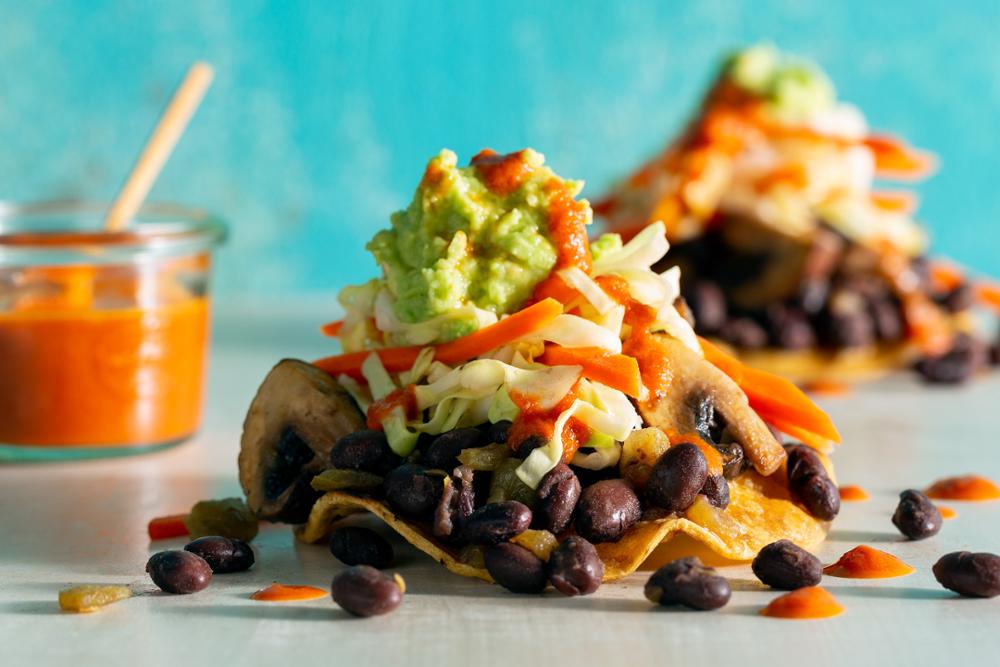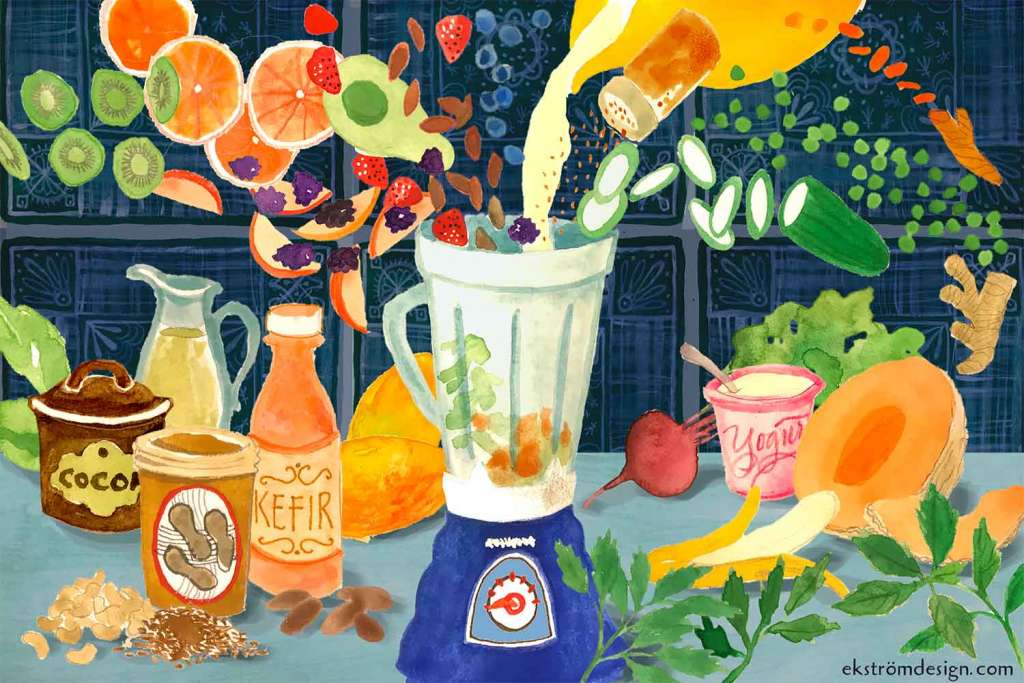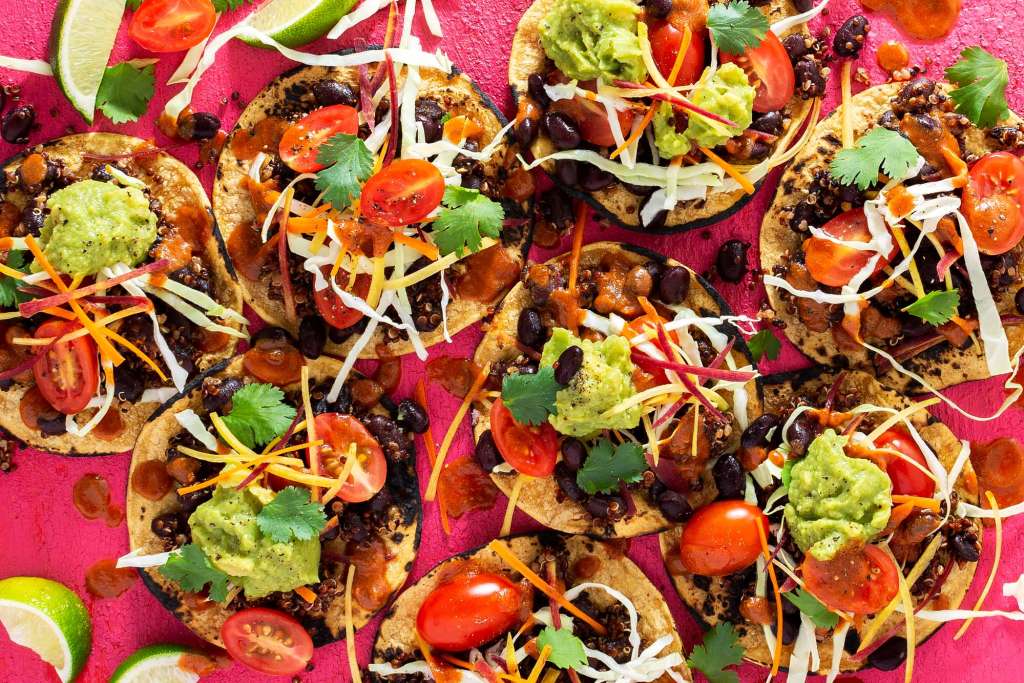Transitioning to a Plant-Based Diet Like a Pro

Plant-based diet: It’s a phrase that gets thrown around a lot when talking about different lifestyles and diet trends. But what is a plant-based diet exactly, and what are the actual benefits? Here, we’re breaking down everything a beginner needs to know about plant-based diets, including how to make the transition easier.
What is a plant-based diet?
In simplest terms, a plant-based diet is exactly how it sounds: a diet that focuses primarily on eating plant-based foods. Those foods typically include:
- Veggies
- Fruit
- Legumes
- Whole grains
- Nuts
- Seeds
The overall goal of a plant-based diet is to concentrate on eating whole foods. That means minimizing foods that are processed, contain refined ingredients (like white flour and added sugar), or come from animals, like:
- Meat
- Dairy
- Eggs
- Seafood
- Poultry
- Honey
Like with any diet or lifestyle change, how you approach this is entirely up to you. After all, it’s called a plant-based diet, not a plant-only diet. Meaning, you can decide to minimize the amount of processed and animal products or eliminate them altogether, as with vegan or vegetarian diets.
Although vegan and vegetarian diets may seem similar to plant-based, they’re quite different. That’s because vegetarians typically eliminate meat products but still eat things like dairy, eggs, and fish. Vegans, on the other hand, stay away from animal products entirely.
Benefits of a plant-based diet
There are tons of reasons people choose a plant-based diet—reasons that go way beyond just a healthier lifestyle. But first, let’s talk about the initial health benefits you’ll get from eating more natural, plant-based foods:
- Getting more vitamins and minerals
- Increasing your fiber intake
- Consuming less cholesterol and saturated fat
- Boosting your protein and calcium intake
All of those benefits are just the beginning. That’s because they build a solid foundation for an overall healthier diet, which we know can enhance so many other aspects of our health.
Heart health
One of the biggest perks of a plant-based diet is better heart health. More specifically, studies have found that eating a plant-based diet—compared to one that focuses on animal-based foods—can help lower your risk of:
- A heart attack
- Cardiovascular diseases
- A stroke
It’s important to note that this particular study focused on people who didn’t eliminate animal products; they just ate smaller portions.
Cognitive health
Just as important as taking care of our bodies, we also need to take care of our brains. And lucky for us, science has proven healthy diets can help us do just that. One study found that those who eat higher amounts of fruits and veggies can reduce their risk of cognitive decline by up to 33%. Another study found that plant-based diets can lower or slow the risk of developing Alzheimer’s disease.
Type 2 diabetes
Because a plant-based diet reduces the amount of processed foods, it can help those with type 2 diabetes control their blood sugar better — by about 3x times. One study that focused on type 2 sufferers discovered that those who followed a plant-based diet saw:
- Improved insulin sensitivity
- Decreased HbA1c levels
- Weight loss
The short of it? For those who have type 2 diabetes, a plant-based diet can lead to significant health improvements that help manage, prevent, or reverse the disease.
Weight loss
At its core, weight loss typically comes down to a healthier lifestyle. One that incorporates more whole, nutrient-packed foods and less processed foods that are high in fat and cholesterol. This is backed up by several studies, one of which compared five different diets and found that plant-based ones can lead to more weight loss than others.
Sustainability
There’s another awesome benefit of a plant-based diet that goes beyond your body and mind: helping the environment. Because you’re eating less (or eliminating) foods that are processed, you’re personally reducing your carbon footprint. Researchers even discovered that if the population adopted more plant-based diets, we could reduce greenhouse gases by up to 70% and water use by up to 50%. All of which would significantly better our planet.
Other additional benefits
Beyond the major health benefits of a plant-based diet, there’s a chance you can see some additional positive effects, like:
- More regulated digestion (because of all the fiber)
- Healthier skin (because of the increased antioxidants)
- Better or more stable energy levels (from more regulated blood sugar and less “sugar crashes”)
How to transition to a plant-based diet
As with any lifestyle change, it’s much easier (and more sustainable) if you transition into it instead of diving in headfirst. Slowly building tools that help you transition is not only a great way to start but also a great way to make sure you stick with it. So, how do you start a plant-based diet? Here are some tips for beginners to do just that.
1. Build a solid plant-based foundation.
In other words, start to see plant-based foods as your base for every meal or snack — not as a side dish. Foods like:
- Vegetables (including starchy ones like potatoes and squash)
- Whole grains
- Fruits
- Legumes (like beans, lentils, and chickpeas)
- Nuts, seeds, and nut butters
2. Slowly minimize animal-based products.
As we mentioned before, a plant-based diet doesn’t mean you have to eliminate animal products from your diet entirely. But whether you plan to minimize or remove them altogether, it’s easier to start with a slower transition.
- For your first couple of weeks, still include a small number of animal products. Do this until you reach a point you’re most comfortable (and that’s sustainable).
- Try to make animal-based products a compliment to your plant-based meals, not as a main dish.
- Look for opportunities to substitute animal-based products (like swapping out a cup of dairy milk for oat milk or adding tofu to a salad instead of chicken).
- If you opt to include animal products in your diet, purchase high-quality ones (like pasture-raised eggs, free-range chicken, and grass-fed beef or pork).
- Remember, you don’t have to eliminate animal products – just make sure they aren’t the focal point of your meal.
3. Remember which foods to eliminate or avoid.
As with any diet or lifestyle change, remember that it’s not about restriction, and what you choose to eliminate or avoid is up to you. That said, to reap the full benefits of a plant-based diet, try to stay away from these foods:
- Packaged foods
- Refined grains (like white bread, pasta, and rice)
- Added sugars and artificial sweeteners
- Fast food
- Processed meats (think deli meats, bacon, and sausage)
- Processed vegan foods (because while they technically qualify as plant-based, they’re usually processed, fake, and filled with a lot of unknown ingredients)
- Candy
- Game meats
- Sodas
- Ice cream
As a general rule of thumb, stick to the outside aisles of grocery stores (where produce is usually found), and try to purchase items with the lowest number of ingredients — and ones you can actually read and understand.
4. Use a Sunbasket meal delivery plan to get started.
Creating new lifestyle changes (and sticking to them) can sometimes be a little overwhelming. Where do you start? What meals should you plan? How do you make time for it?
Our answer: let our award-winning chefs and amazing dietitians help you get started with plant-based weekly menus and meal delivery. Our chefs make eating plant-based meals easy and supremely delicious.
When you sign up, you’ll have a choice of meal plans. Our plant-based meal plans are Vegetarian/Vegan, Pescatarian, and Mediterranean. You can always add meals from other meal plans to your basket to keep things flexible. Another helpful feature is that you can often choose which protein you’d like with your meal. Impossible Burger and Daring chicken are two delicious plant-based options.
Jump-start your plant-based diet with Sunbasket
At Sunbasket, we’re not just about making your transition to a plant-based diet easier. Our goal is to deliver the best ingredients that help bring our award-winning, chef-designed meals to life. On top of that, we want you to actually feel happier and healthier, and give you the options you need to make the most of your new plant-based lifestyle.
Ready to start your plant-based journey? Explore how Sunbasket works, then get started with your own meal plan delivery now!









